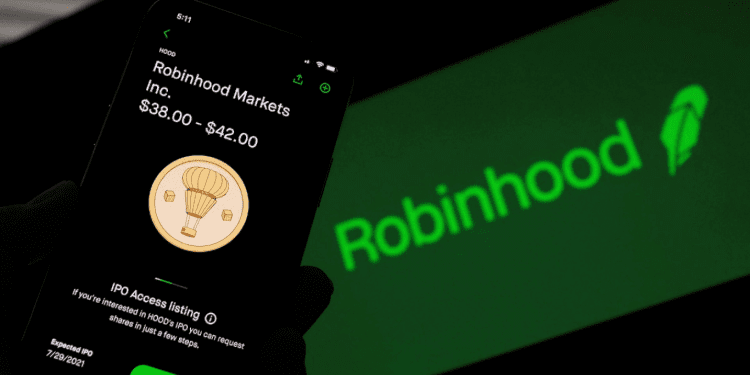- Robinhood’s Chief Legal Compliance Officer indicated that the company is reviewing the SEC’s recent actions and might delist certain tokens to ensure compliance.
- The potential delisting of certain tokens could impact the company’s crypto revenue, which is already down by 30% YoY in Q1 2023.
In recent weeks, the world of cryptocurrency has been rattled by enforcement actions from the Securities and Exchange Commission (SEC). These actions targeted major exchanges, Binance and Coinbase, accusing them of listing unregistered securities. This has brought to the forefront a significant concern within the crypto space – lack of disclosures to prospective investors and opacity in digital assets.
As these legal developments unfold, Robinhood, the fintech trading app widely utilized for crypto trading, finds itself in a challenging position. The platform, known for democratizing finance for all by offering commission-free trading, is now reassessing its stance on specific tokens it currently lists. Among these tokens are Solana (SOL), Polygon (MATIC), and Cardano (ADA), which the SEC has pointed out as unregistered securities in its recent lawsuits.
Robinhood’s Chief Legal Compliance Officer, Dan Gallagher, a former SEC commissioner himself, announced during a Congressional hearing that the firm is “actively reviewing the SEC analysis to determine what if any, actions to take in that regard.” This might result in Robinhood delisting the tokens named in the SEC lawsuits.
The Disclosure Dilemma in the Crypto World
Cryptocurrency is often praised for its transparency due to the use of blockchain technology. However, this only sometimes translates to transparency in the investment realm. Gallagher highlighted a significant gap, testifying, “Compulsory disclosure in the digital asset space is missing,” raising a red flag on how retail investors could fully understand their purchases when investing in crypto.
Industry stakeholders, including Gallagher and representatives from Coinbase and the law firm Willkie, deliberated on what should be disclosed to potential crypto investors. The debate included both quantitative and qualitative measures. Despite this discussion, skepticism was expressed by Rep. John Duarte, R-Calif., who doubted whether traditional disclosure norms could effectively be applied to crypto investments.
Looking Ahead: Future Implications for Crypto Trading
The SEC lawsuits and Robinhood’s subsequent evaluation of its token listings have significant implications for both the platform and the broader cryptocurrency industry. A primary concern is whether the delisting of specific tokens might impact Robinhood’s already dwindling crypto revenue, which has declined by 30% YoY in Q1 2023.
Beyond financial repercussions, the regulatory actions have triggered a critical conversation about the structure and norms of the crypto market. Current laws and regulations were not designed with cryptocurrencies in mind, leading to a nebulous environment where exchanges, projects, and investors often need clarification about their responsibilities and rights. There is a dire need for clear regulatory guidance to promote compliance and protect investors, a sentiment echoed by many industry players.
As Robinhood and other exchanges navigate these unprecedented challenges, the hope is for a more transparent and regulated crypto industry better equipped to safeguard investor interests. However, only time will tell how these evolving legal and regulatory landscapes will shape the future of crypto trading.












